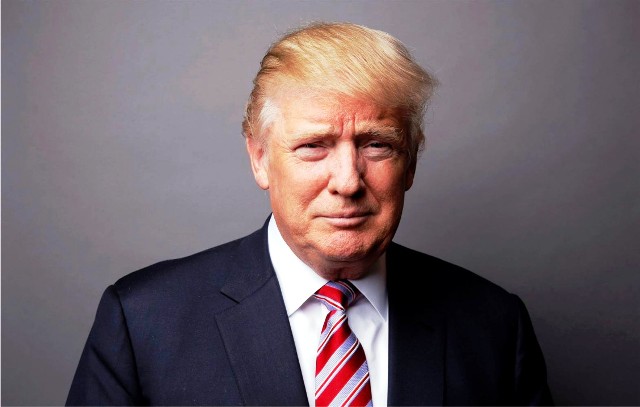Editorial
Lessons From US Election

The November 3, 2020, presidential election of the United States of America (USA) has come and gone. Expectedly, a winner and a loser have emerged. Joseph Robinette Biden Jr., 77, won the poll in line with media predictions in a historic defeat of the incumbent, Donald J Trump, whose turbulent first term has opened new chasms in the world’s leading democracy.
Elected as vice-president is Kamala Harris, the first woman and an African-American with roots in Asia, to occupy that post since its establishment in 1789.
With the latest release of the three final States of Georgia, North Carolina and Pennsylvania, Biden now has 306 Electoral College votes and Trump 232 out of a total of 538 votes. Biden became president-elect when he crested far more than the required 270 votes needed to win. The victory gestures an end to the Trump Presidency and Biden’s ascension come January 20, 2021, as the 46th President of the United States.
On one hand, it is good news for the US and the world. For a country that is seen as an exemplary reference in the civilised and democratic world, Biden’s victory offers a refreshing hope that democracy and liberty will never end. On the other hand, it is one thing to be victorious, quite another to heal the vicious divisions in the country that have pushed and shoved consensus and bipartisan cooperation. In this, Biden has a difficult task ahead.
Despite its robust institutions and strong political culture, the US is encountering the most contentious transition in two centuries with Trump and his Republican Party, without evidence, refusing to concede defeat and battling in the courts; while some hard-line right-wingers threaten violence and question the legitimacy of the polls.
But across the United States, endless celebrations by Biden’s and Democratic Party supporters are almost matched by protests by grim Trump proponents reverberating his unfounded claims of election fraud and insisting on recounts and lawsuits.
Characteristically, President Trump, tumultuous as ever, has disparaged America’s 231-year-old constitutional democracy before the global audience. His bullheadedness sadly resonates with his support base and most bigwigs in his Republican Party. This is no surprise as Trump similarly discredited the 2016 election that got him into office because he did not earn the majority vote.
In the record-breaking poll, over 160 million persons voted, that is 67 per cent – the highest turnout in 120 years. With over 75 million and 71 million votes respectively, both candidates outperformed the record of the highest number of votes – 69.49 million previously set by Barack Obama in 2008.
Trump must appreciate that the US is a global model of democracy. That is why the system is approved by many countries. Accordingly, The Tide urges him to jettison pride and congratulate Biden and his vice, Harris. Unfortunately, by his action, he has singlehandedly destroyed the greatness of American democracy – the idea that the US was an exemplar of democracy, a model for others to emulate. This may be a painful realisation for many.
He must also understand that it is human to gain a victory or lose in any contest in life including election. After all, Hillary Clinton, the Democratic Party candidate in the 2016 presidential election that took the outgoing president to power, congratulated him in her concession speech and called on her supporters to accept the election result. Why can’t he do the same? His posture has returned the US to the path of retrogression.
If a former Nigerian president, Goodluck Jonathan, could take off arrogance and personal interest and congratulated his challenger, President Muhammadu Buhari, even when the election results were yet to be declared, then, Trump should do likewise as a repudiation would portray Nigeria as a more united, civilised and stronger country than the US. That may be least expected.
Americans have spoken and President Trump has been rebuked and rejected by his people. His rejection indicates he has been merely grandstanding. However, the US experience is particularly instructive to all Nigerian leaders. They must respect the people’s will, the sanctity of national institutions and the dignity of the country. Most of all, they must realise that power is ephemeral.
Again, unlike Nigeria, the US presidential election was mostly about issues than anything else. Concerns that defined the choice of the electorate included: coronavirus, racial justice, the economy, healthcare, abortion and even candidates’ disposition to the rights of Americans to their preferred sexual orientations. It is proof that the electorate were guided by their disposition to the issues that concern them most.
The global attention Trump attracted to the 2020 presidential election has uncovered the shoddy electoral system in the US. Perhaps, America could learn a thing or two from Third World countries on how to conduct elections and accomplish a quick and clean count of votes. Regardless of who emerges victorious at last, the process and the outcome of the election are bound to reinforce this lesson.
Editorial
Time For GL 17 In Rivers

Editorial
For A Prosperous 2026

Editorial
Task Before New Defence Minister
-

 Politics5 days ago
Politics5 days agoEFCC Alleges Blackmail Plot By Opposition Politicians
-
Business5 days ago
AFAN Unveils Plans To Boost Food Production In 2026
-

 Sports5 days ago
Sports5 days agoJ And T Dynasty Set To Move Players To Europe
-
Politics5 days ago
Datti Baba-Ahmed Reaffirms Loyalty To LP, Forecloses Joining ADC
-
Business5 days ago
Industrialism, Agriculture To End Food Imports, ex-AfDB Adviser Tells FG
-
Politics5 days ago
Bayelsa APC Endorses Tinubu For Second Term
-
Business5 days ago
Cashew Industry Can Generate $10bn Annually- Association
-

 Entertainment5 days ago
Entertainment5 days agoAdekunle Gold, Simi Welcome Twin Babies

